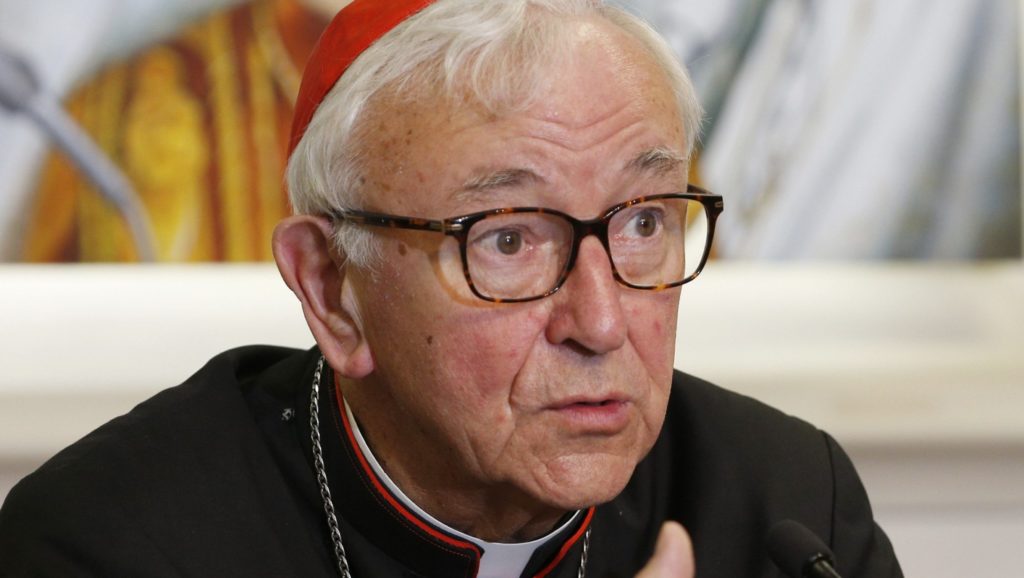Catholic bishops in England and Wales have rejected "gender identity theory," reminding Catholic schools and parishes to uphold traditional teachings on human identity and sexuality.
"Many conflicting, divergent and often contradictory views of the human person have found wide acceptance … they have led to holders of traditional theories being cancelled or even losing their jobs," the bishops said.
"We should never seek to cause offense to another, including in situations where the other person advocates a view of reality that is different from or departs from the Church's vision of the human person. Yet care should be taken to resist the temptation to adopt the language of gender ideology in our institutions," they added.
The call was included in an 11-page "Intricately Woven by the Lord" pastoral reflection on gender, published April 24 by the Westminster-based bishops' conference.
The document said a "new language" had evolved around terms such as "trans," "transgender" and "gender fluidity," adding the bishops wished to help parents and families "pass on the truth regarding the human person" to their children, while also accompanying those struggling "with their identity as male or female."
"This ideology leads to education programs and legislative enactments that promote a personal identity and emotional intimacy radically separated from the biological difference between male and female. Consequently, human identity becomes a choice for the individual, one which can also change over time," the text noted.
"Such a view of the human person is highly pervasive across sections of society, raising significant and pressing pastoral challenges for the church, as well as challenges in the fields of law, medicine, education, business and religious freedom."
Gender studies have featured at Western universities since the 1950s, with many proponents insisting a traditional focus on binary male-female roles discriminates against people displaying sexual variance.
The past decade has seen a sharp increase in people wishing to change sex, although opponents have voiced fears about the loss of female-only spaces in jails and hospitals, as well as unfairness in sports where biological men compete as women.
In Britain, where transgender citizens make up 0.5% of the population of 67.85 million, according to a 2021 census, public health doctors stopped prescribing puberty-blocking hormones to youngsters with gender dysphoria on safety grounds April 1, while an April 10 report said gender services for children were steered by ideology rather than "normal principles of pediatrics and mental health."
In Scotland, a new Hate Crime and Public Order Act, enforced April 1, made it a potential criminal offense to question a person's transgender identity or "varied sex characteristics," and was condemned as contrary to church teaching by the Scottish bishops' conference long before it came into force.
In their April 24 reflection, the U.K. bishops said people "across different spheres of society" shared the Catholic Church's belief, founded on the Book of Genesis, in "the importance of the human body as created."
"Being male or female is … 'fundamental component of personality,'" the bishops said, citing the 2004 Vatican document on the collaboration of men and women in the church and in the world.
"We are to honor our body resisting medical interventions, intended to 'reassign' gender where these destroy the body's fertility or sexual function. Views that promote a misleading view of the human body are deeply concerning as they foster such a limited and flawed view of the human person," the bishops wrote.
The document said male and female roles were determined not just by "biological or genetic factors," but also by "temperament, family history, culture, experience, education, the influence of friends, family members and respected persons," the document said.
However, pastoral accompaniment of those facing gender incongruence and dysphoria should also be based on "respect for parents as primary educators."
"We cannot encourage or give support to reconstructive or drug based medical intervention that harms the body," the bishops' document said.
Among numerous church documents, U.K.'s bishops' reflection quotes the pope's apostolic exhortations "Evangelii Gaudium" (2013) and "Amoris Laetitia" (2016), as well as "Dignitas Infinita ("Infinite dignity"), an April 8 declaration by the Vatican's Dicastery for the Doctrine of the Faith, which deplored mistreatment of people because of sexual orientation, but also criticized use of gender theory to justify sex changes and "new rights."
The bishops said Dignitas Infinita had "solidified" papal teachings, highlighting "the importance of holding together the pastoral care of those experiencing gender dysphoria or identifying as transgender and the need to proclaim the truth of the human person."
They added that the church offered a compassionate, sensitive and respectful welcome to adult Catholics who had "chosen to transition socially and medically," but said Catholic parishes, workplaces and schools should reflect "the foundational Catholic understanding of the human person" in their work.
Addressing an April 24 London press conference, Cardinal Vincent Nichols of Westminster said the bishops' Reflection was in "absolute harmony" with the Vatican.
However, he added that it was not intended as a "doctrinal statement," and said it would be up to Catholic educators to decide whether "preferred pronouns" would be allowed for students who identify as trans or LGBTQ+ at Catholic schools.

